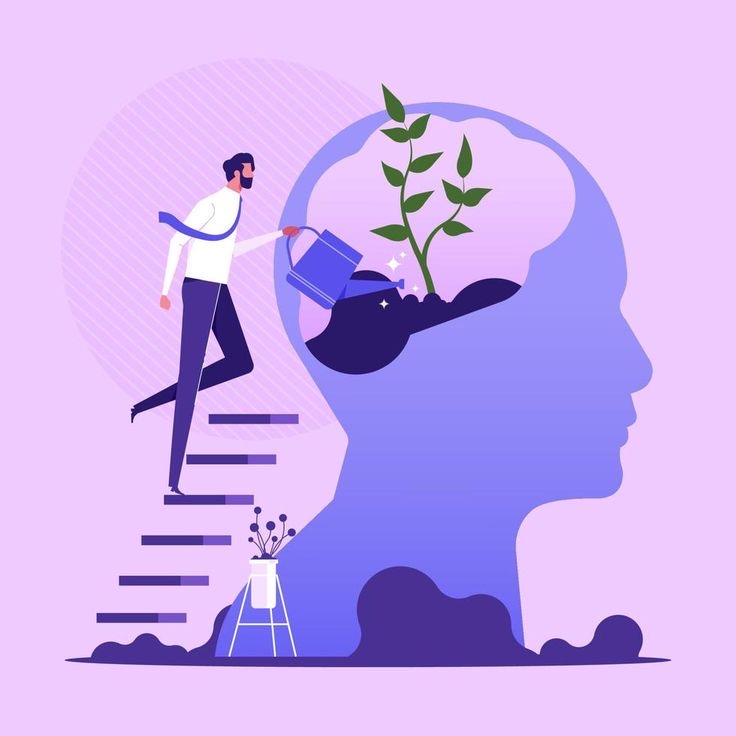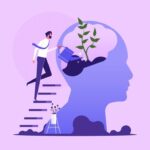Perfectionism can never be associated with human beings, so we give our best shot at becoming better people. Nobody was born a better person; we are what our society makes us. This is why we must strive to be better people and make our society a better place. It gets better when people desire to take action to become better.
This brings us to the limelight of the big question, “How can you become a better person?”
There are many ways to become a better person, but know that it doesn’t happen overnight. You may have made many mistakes and feel guilty about them. You may be wondering if it’s possible to become a better person even when you’ve been horrible to people. Yes, it’s possible.
You should be ready to make sacrifices to improve yourself, have a positive mindset, and approach life peacefully.
For you to better understand how to become a better person, You must know and understand the answers to questions like “why is it important?” This article will give you everything you need to know about becoming a better person without faking it.
Table of Contents
10 Solid Tips to Becoming A Better Person
Here are ten tips to guide you in becoming a better person;
-
Be willing to become a better person
The first step at self-improvement is acceptance and willingness. Willingness to become a better person is a fundamental aspect of personal growth and development. Embracing change requires openness, humility, and a willingness to challenge innate habits and beliefs. Personal growth involves stepping outside your comfort zone, confronting uncertainty, and learning new things.
If you’re stuck in things you were taught when you were younger, you will find it challenging to grow as a person because you’re oblivious to what growth means. Cultivating a mindset of curiosity and adventure can help you approach change enthusiastically, viewing it as an opportunity for self-discovery and transformation.
-
Seek feedback and learn from criticism
Feedback and constructive criticism can provide valuable insights and opportunities for growth. Be open to receiving feedback from others, whether it’s from friends, family, colleagues, or mentors.
Approach feedback with curiosity and a willingness to learn rather than defensiveness or resistance. Use feedback as an opportunity to reflect on your behaviour, identify areas for self improvement, and take proactive steps to address them.
Who knows? You may not only be developing your personal growth when you are open-minded but also every other aspect of your life.
-
Be honest in all your dealings
What would be your reaction when your close friend or business partner lied to you? You will see it as a violation of your trust. It’s challenging to come by honest people nowadays, and many people see lying as a way to escape consequences and cheat nature. Honesty is the best remedy for any situation; no one will have second thoughts about you when you’re honest.
Challenge yourself to develop good habits. If you’re a chronic liar, you can start by telling the truth or avoid situations that make you tell lies in one day. Then, you can increase it to two or three days. This tip will change your mindset and make you a better person.
Honesty forms the foundation of trust and integrity in relationships. Make a conscious effort to be honest in your interactions with others, even when it’s complicated. Avoid exaggerating or withholding information, and strive to communicate openly and transparently. Practice self-honesty by being truthful about your thoughts, feelings, and actions.
-
Embrace the power of vulnerability
Contrary to popular belief, vulnerability is not a weakness but a profound strength. It’s the courage to be authentic, imperfect, and open to life’s experiences. Embrace vulnerability by sharing your genuine thoughts and feelings with others, allowing yourself to be seen and heard authentically.
Know that nobody is perfect, and that making mistake and experiencing setbacks are inevitable parts of the process for personal growth. Vulnerability fosters deeper connections, empathy, and self-acceptance, paving the way for personal growth and meaningful relationships.
Are you a writer or an aspiring one? Intern at Insight.ng to sharpen and hone your writing skills.
-
Cultivate a beginner’s mindset
Approach life with a beginner’s mind, free from preconceptions, judgments, and assumptions. Cultivate curiosity, wonder, and openness to new experiences. Instead of viewing challenges as obstacles, see them as opportunities for learning and growth. Embrace a mindset of curiosity and exploration, seeking out novel experiences and perspectives that expand your horizons and enrich your life.
For example, a person wants to become more compassionate towards others. They may judge people based on their experiences or preconceived notions. However, by cultivating a beginner’s mind, they can let go of these biases and approach each interaction with openness and curiosity.
Instead of assuming they know everything about a person or situation, they listen with genuine interest, seeking to understand the perspectives and experiences of others. They let go of their ego and embrace vulnerability, acknowledging that they don’t have all the answers and that there is always room for growth.
By cultivating a beginner’s mind in their journey towards becoming more compassionate, they open themselves to new possibilities and insights. They may discover commonalities with others they hadn’t previously recognized or uncover hidden layers of complexity within themselves.
As they continue to practice this mindset, they become more empathetic, understanding, and connected to those around them. They approach each interaction with humility and gratitude, recognizing that every encounter is an opportunity for growth and mutual understanding.
Read also: How to Cultivate a Positive Mindset: Strategies for Nigerians.
-
Manage your anger
There is nothing beneficial about anger. An angry person destroys things physically or emotionally. This is not to say anger should be erased from your emotions; it’s a useless emotion you must manage. You may have good human characteristics but can be defaced by rage.
It would help if you always took chances to ensure that negative situations don’t control you; negative situations can ruin your person/image. It’s impossible not to find yourself in situations that lead to anger, and this is why you must channel the anger into other things so that you will not misbehave.
You can relax and channel your anger elsewhere by listening to soothing music, taking a walk, reducing any background noise, relaxing physically, talking to a friend, or exercising.
Managing your anger is not an attempt to please anybody or make people see you as better. It’s a way not to spoil others’ day and become a better person. If you have anger issues, you should visit a professional therapist or take anger management classes so that you can become better as an individual and also spread love to society.
-
Stop making excuses
Taking responsibility for your actions is a hallmark of personal accountability and growth. Instead of making excuses or blaming others for your mistakes, own up to your actions and their consequences. Practice self-reflection to identify areas for self-improvement and proactively address any shortcomings or challenges. Cultivate a mindset of accountability and resilience, focusing on learning and growth rather than dwelling on past failures.
-
Become better at communicating
Effective communication is essential for building solid relationships and resolving conflicts constructively. Improve your communication skills by practicing active listening, expressing yourself clearly and assertively, and seeking to understand others’ perspectives. Be mindful of nonverbal cues such as body language and tone of voice, as they can significantly impact the effectiveness of your communication.
Read also: Effective Communication: Strategies for Teenagers and Young Adults.
-
Do random acts of kindness
Another way to improve yourself is to perform acts of kindness. Random acts of kindness can brighten someone’s day and create a ripple effect of positivity. Look for opportunities to perform acts of kindness, whether helping a stranger in need, complimenting a colleague, or simply offering a listening ear to a friend. Kindness benefits others and cultivates a sense of compassion, empathy, and connection within yourself.
-
Set clear intentions and goals
Setting clear intentions and goals can provide direction and motivation for personal growth. Take the time to reflect on your values, aspirations, and areas where you would like to improve. Set specific, achievable goals that align with your values and priorities, and develop a plan to work towards them. Having a clear sense of purpose can help you stay focused, motivated, and accountable as you strive to become a better person.
Conclusion
Becoming a better person is a continuous journey of self-discovery, growth, and self-improvement. By focusing on honesty, kindness, effective communication, and accountability, you can cultivate a strong foundation for personal growth and fulfillment.
Practice self-awareness, empathy, and a willingness to learn from feedback, and strive to contribute positively to yourself and the world around you. Remember that small, consistent actions can lead to significant changes over time and that the journey of becoming a better person is ultimately one of growth, resilience, and transformation.
Do you like what you’ve just read? Subscribe to our newsletter here to receive notifications of more valuable posts like this.
Edited by Oluwanifemi Akintomide.


